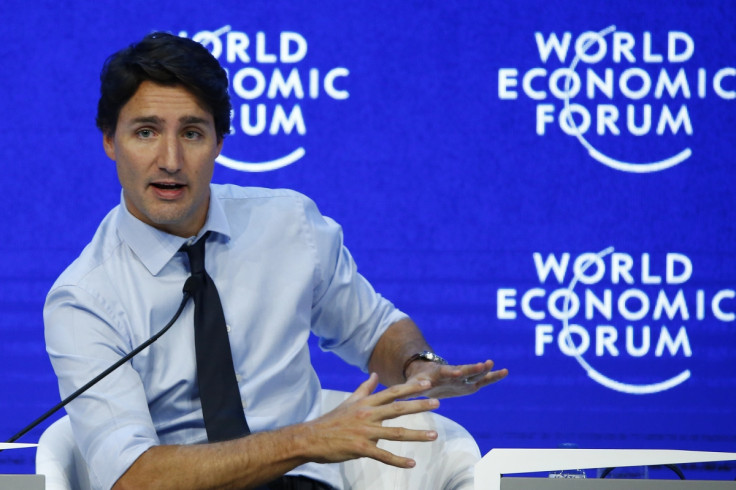Davos 2016: Justin Trudeau tells Leonardo Di Caprio to cut the 'inflammatory rhetoric' of Canadian oilsands

Leonardo Di Caprio has been lending his voice to climate change issues and the effect of industry on the natural landscape. Following his speech at the COP21 in December 2015, the actor spoke out about Canada's oil and gas sector at the World Economic Forum (WEF) in Davos, Switzerland.
Canadian Prime Minister Justin Trudeau, however, was not too happy about Di Caprio's "inflammatory rhetoric" and said that it was of no help to those who had lost their oil industry jobs.
"I pointed out that both Alberta and Canada have new governments over the past year that are committed to action on climate change... and that there are families suffering, out of work, who need to be supported, and inflammatory rhetoric doesn't necessarily help those families or help Canada," Trudeau said as he recounted his remarks made to Di Caprio at a dinner hosted by Chinese billionaire Jack Ma on Wednesday.
When asked what the actor's response was, Trudeau said, "He actually said if we took concrete action on climate change he would be the first to come up and celebrate with us."
While pro-oil lobbyists were pleased with Trudeau's defence of Big Oil, they felt that he needed to make a stronger point, not only when "socialising with American actors".
Candice Bergen, Member of Parliament for Portage-Lisgar and the Official Opposition Critic Responsible for Natural Resources said, "The Prime Minister needs to be clear with a very public statement and decisive action, that show that he and his government support the Natural Resource sector in Canada and the jobs and economic prosperity it brings."
Like Bergen, others too felt that Trudeau, while voicing his support of the proposed Keystone XL pipeline to the United States has been deflective when it came to talking about Canada's Energy East project. The project, which will carry 1.1 million barrels of oil from Alberta and Saskatchewan to refineries in New Brunswick each day, will create 14,000 direct and indirect jobs.
"The energy sector needs someone at the federal level to step up and show initiative on the important issues of the day, like Energy East," Bergen said.
"The Prime Minister can't be saying one thing in one place, and change his tune when he's in a different province."
© Copyright IBTimes 2025. All rights reserved.






















